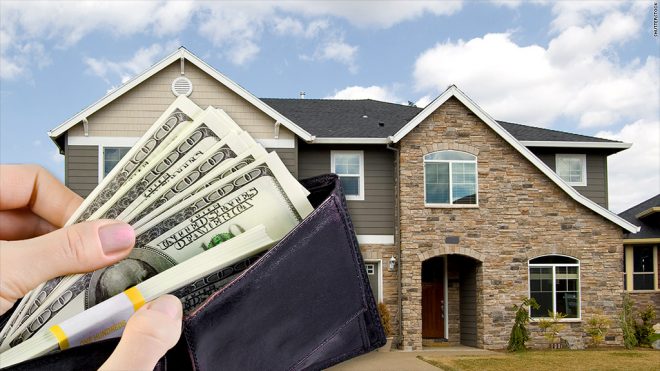
What is Passive Real Estate Investing?
When you think of investing in real estate, you probably think of buying a home in decent condition, doing some renovating, and then either selling it for a profit or using it as a rental to create monthly income for yourself! This type of real estate can be lucrative for the right person, but the income is far from passive. Think of all the time that goes into looking for the right property to buy, coordinating all the renos, and then either selling or acting as a landlord.
Passive real estate investment is radically different from flipping properties or managing rentals. To create passive income with real estate, you’ve got to invest in companies who will do the active parts for you. For example, investing in a REIT (Real Estate Investment Trust) is considered a passive real estate investment because you put your money in, and then a team of real estate professionals do the buying and selling of properties without consulting you. You invest in someone else’s ability to do well at active real estate investing.
What is Hard Money Lending?
A hard money loan (aka, a bridge loan), in terms of real estate investing, is a short-term loan through a private lender where the amount is based on the “After Repair Value” (ARV) of a property. Here’s an example – you found a duplex in your area that would make a perfect rental, and you need to act fast, but you aren’t currently preapproved for a mortgage. This would be a great instance to look into a hard money loan!
Pros of Hard Money Lending
- It’s quick! Mortgages can take months to come through, whereas a bridge or hard money loan can be ready in just weeks! It’s a great option for when you’re pressed on time to get a project completed.
- It’s flexible. Since hard money loans only come from private lenders, you can usually do a little negotiating to get the perfect terms for your situation.
- No collateral. The collateral in a hard money loan is simply the property you’ve acquired the loan for! No reason to involve your retirement accounts or any other personal assets.
Cons of Hard Money Lending
- Potentially Higher Rates. Since hard money or bridge loans are so readily available, there’s often a steeper rate and maybe even more fees. That’s just the price you pay for convenience!
- Shorter Repayment Periods. Hard money loans are based on the “After Repair Value” (ARV) of a property, and they’re usually used in real estate flip projects. Likewise, the repayment periods are usually based on the estimated amount of time the project will take to be completed and sold. Average repayment periods for hard money loans are one to two years.
How Do Hard Money or Bridge Loans Create Passive Real Estate Investment Opportunities?
Hard money loans are most commonly used by real estate investors looking to flip a property in a relatively short amount of time. In the beginning of this article, we described how that type of investing is considered active. So, how do these types of loans benefit passive real estate investors?
At Wilshire Quinn Capital, we think that bridge loans and passive real estate investing go hand in hand. That’s why we created the Wilshire Quinn Fund – passive investors contribute to the fund which is then used to extend hard money loans to successful residential and commercial real estate projects. To learn more about our in-house passive real estate investment and hard money lending fund, get in touch with our team.








